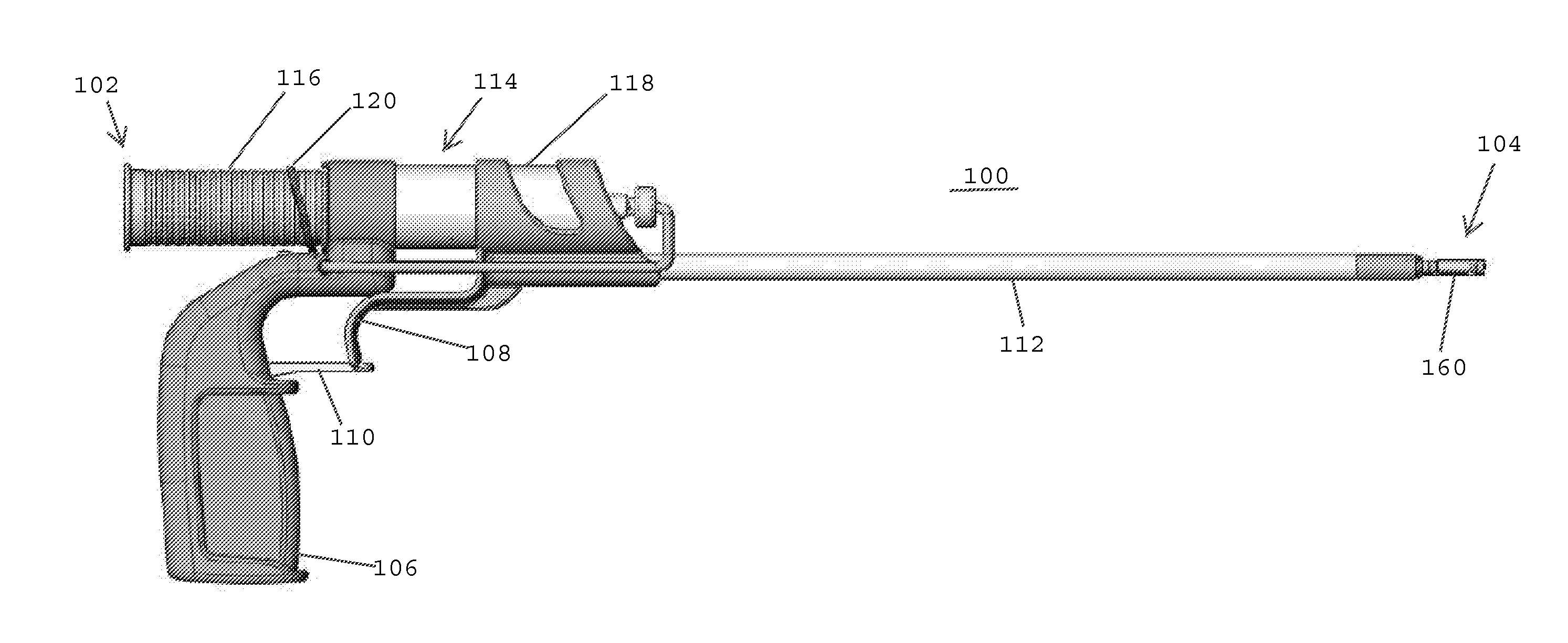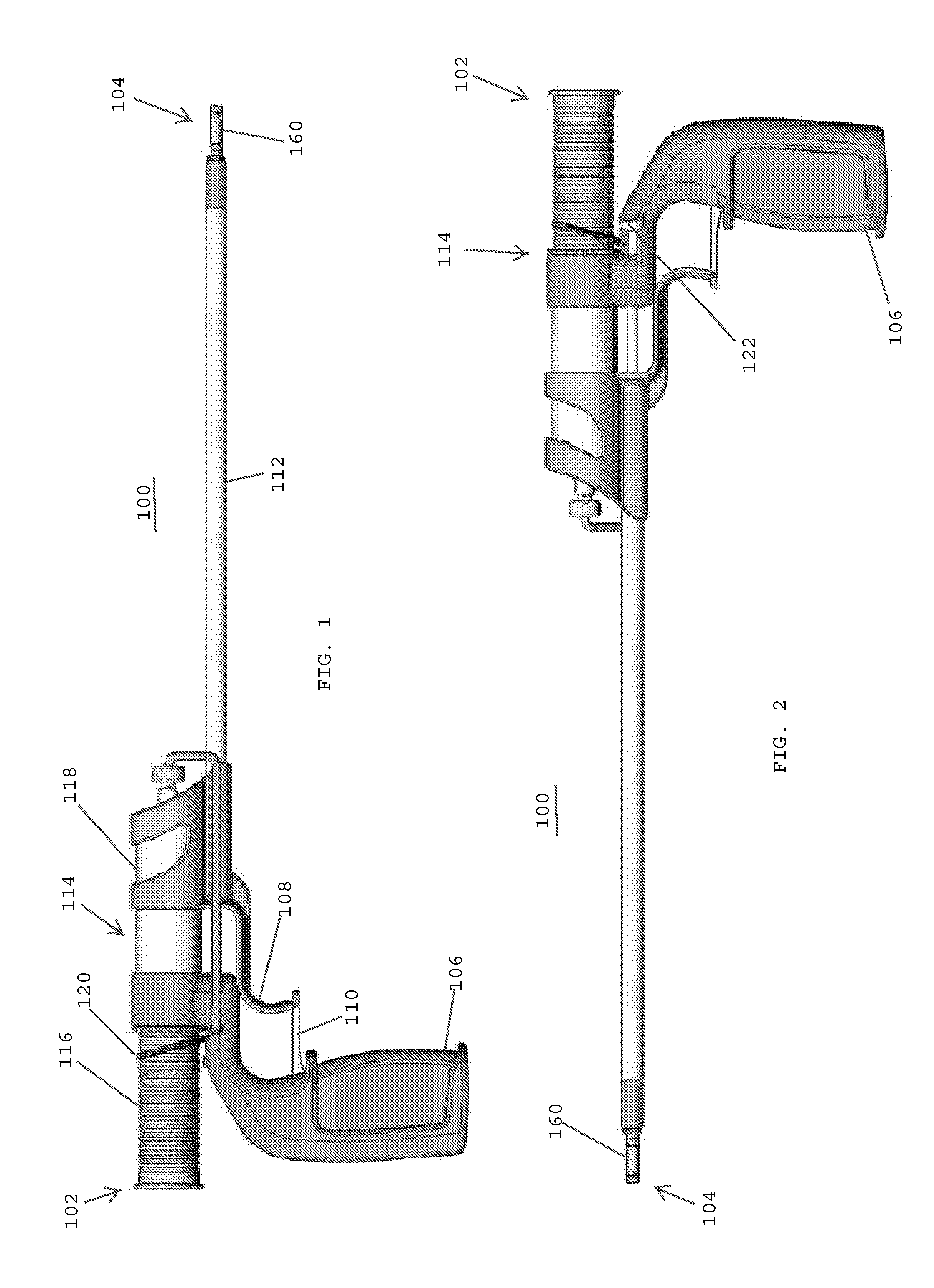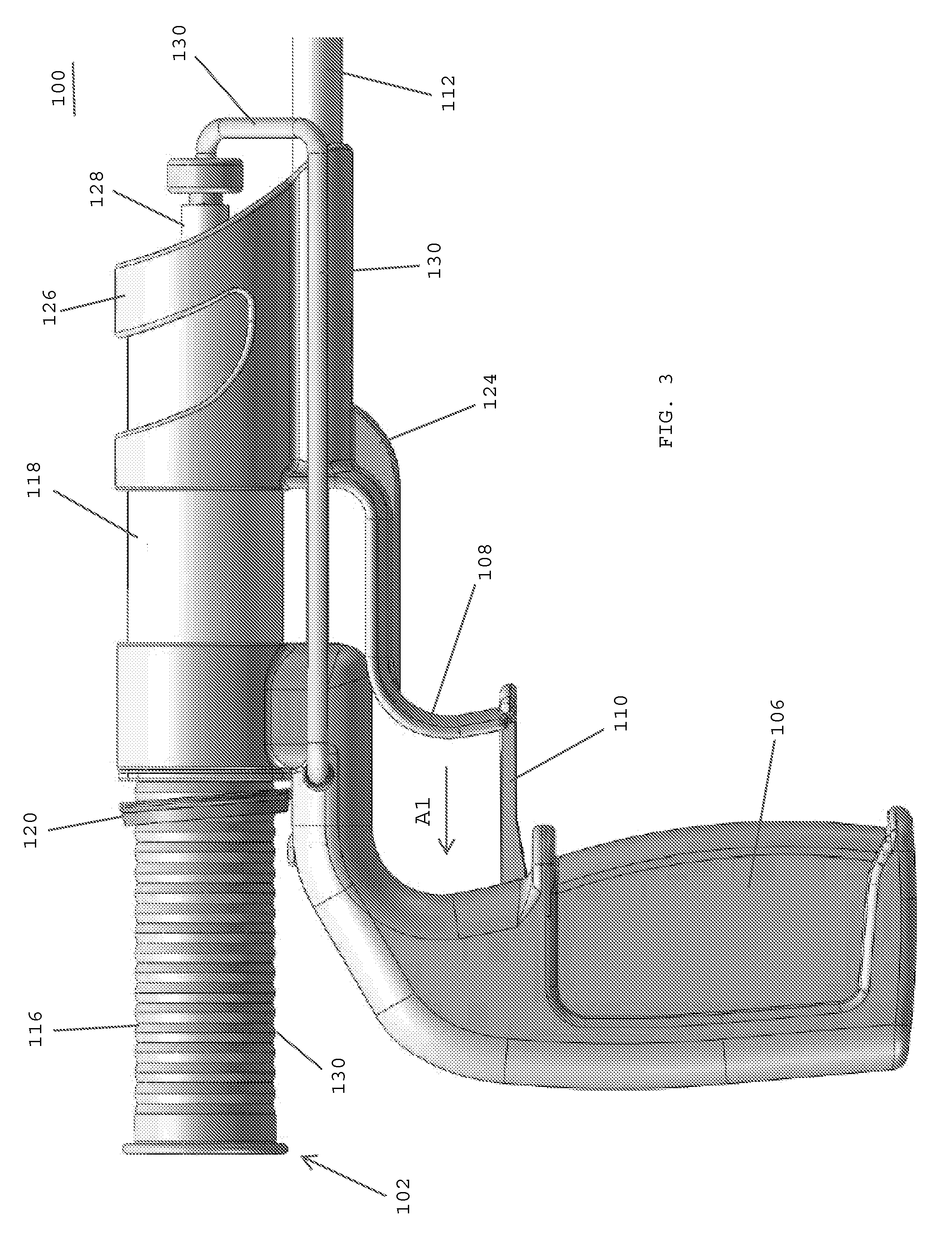[0030]Although the present invention is not limited by any particular theory of operation, it is believed that the present invention provides numerous benefits over prior art instruments, systems, and methods. One
advantage of the present invention is that the instrument protects hemostats that include moisture-sensitive components from premature
exposure to moisture or fluids (e.g. bodily fluids). This may be accomplished using a fluid-resistant element that surrounds the hemostat until the hemostat is delivered to the
tissue surface at a
surgical site.
[0031]In one embodiment, an instrument for delivering a hemostat, such as a topically applied hemostat, includes an outer shaft having a proximal end and a distal end, a hemostat disposed at the distal end of the outer shaft, and a fluid-resistant element connected to the distal end of the outer shaft and surrounding the hemostat, whereby the fluid-resistant element has a breakable, fluid-resistant seal at a distal end thereof. The fluid-resistant element may be snap-fit onto the distal end of the outer shaft. The breakable, fluid-resistant seal may be a pierceable membrane, a rubber seal, or a cross-slit (four-way duckbill) valve. The fluid-resistant element may include a
cartridge having a breakable, fluid-resistant seal at a distal end thereof. The
cartridge may include a
cartridge tube having a proximal end, a distal end, and a central opening extending between the proximal and distal ends thereof. The cartridge may also include the breakable, fluid-resistant seal covering the central opening at the distal end of the cartridge tube. In one embodiment, the cartridge tube has structure for connecting to the distal end of the outer shaft. The connecting structure may include one or more ridges, projections, bumps, grooves, depressions, a press-fit, and / or threads.
[0032]The instrument may also include the outer shaft having a central lumen extending to the distal end thereof, an intermediate shaft telescopically received within the central lumen of the outer shaft, the intermediate shaft having a proximal end, a distal end that extends distally from the distal end of the outer shaft, and a central lumen extending to the distal end thereof, and an inner shaft telescopically received within the central lumen of the intermediate shaft, the inner shaft having a proximal end and a distal end that extends distally from the intermediate shaft. The instrument may also include a
balloon having a proximal end secured to the distal end of the intermediate shaft and a distal end secured to the distal end of the inner shaft, whereby the hemostat is disposed at the distal end of the inner shaft and the fluid-resistant element is connected to the distal end of the outer shaft and surrounds the hemostat for forming a fluid-resistant chamber around the hemostat.
[0033]In one embodiment, the instrument includes a first
actuator coupled with the outer shaft for selectively moving the distal end of the outer shaft and the fluid-resistant element proximally for breaking the fluid-resistant seal and delivering the hemostat from the distal end of the instrument. The instrument may also include a second
actuator for inflating the
balloon, and a third
actuator for moving the distal ends of the intermediate and inner shafts relative to one another for changing the shape of the inflated balloon.
[0034]In one embodiment, the instrument includes a cartridge
loader having an upper end with a platform, and a central opening extending from the platform toward a lower end of the cartridge
loader, whereby the central opening is adapted to receive the cartridge and the cartridge platform is adapted to receive a hemostat prior to loading the hemostat into the cartridge. The central opening of the cartridge
loader desirably has a closed end with a
support surface that conforms to the fluid-resistant seal at the distal end of the cartridge.
[0035]In one embodiment, an instrument for controlling bleeding includes an outer shaft having a proximal end, a distal end, and a central lumen extending to the distal end thereof, an intermediate shaft telescopically received within the central lumen of the outer shaft, the intermediate shaft having a proximal end, a distal end, and a central lumen extending to the distal end thereof, and an inner shaft telescopically received within the central lumen of the intermediate shaft, the inner shaft having a proximal end and a distal end that extends distally from the intermediate shaft. The instrument also desirably includes a hemostat disposed at the distal end of the inner shaft, and a water-resistant element connected to the distal end of the outer shaft and surrounding the hemostat, whereby the water-resistant element has a breakable, water-resistant seal at a distal end thereof.
 Login to View More
Login to View More  Login to View More
Login to View More 


